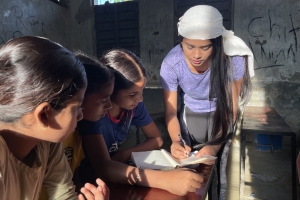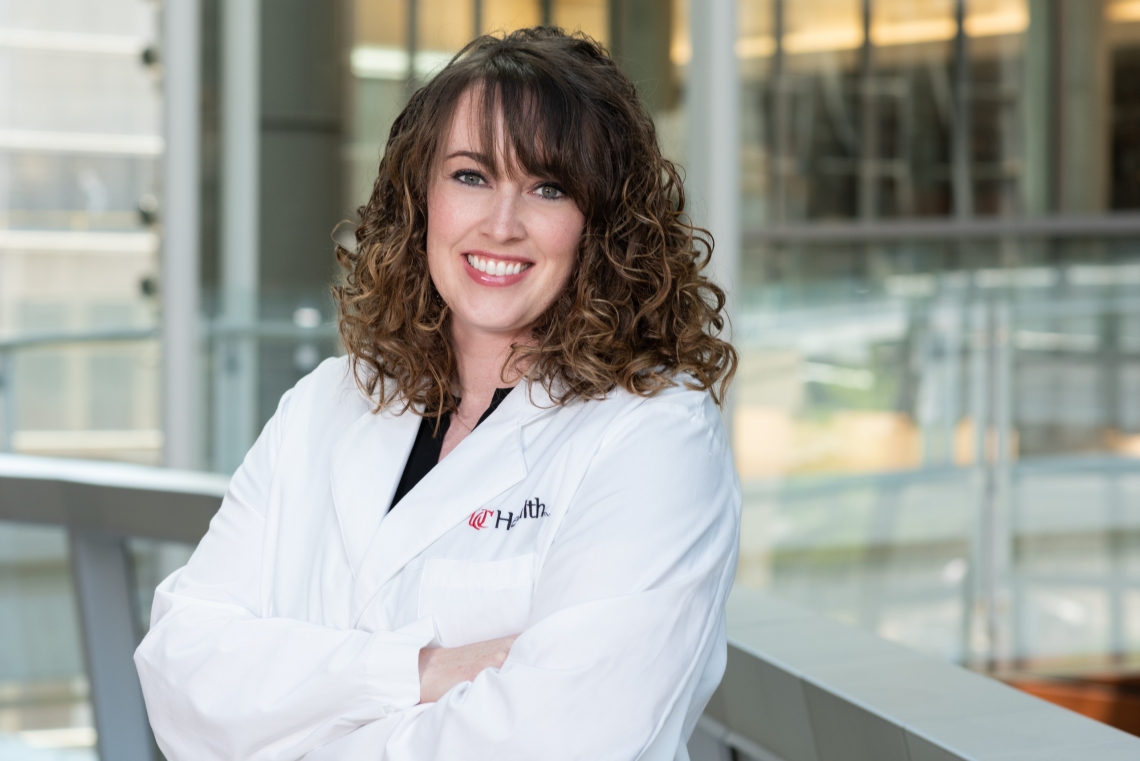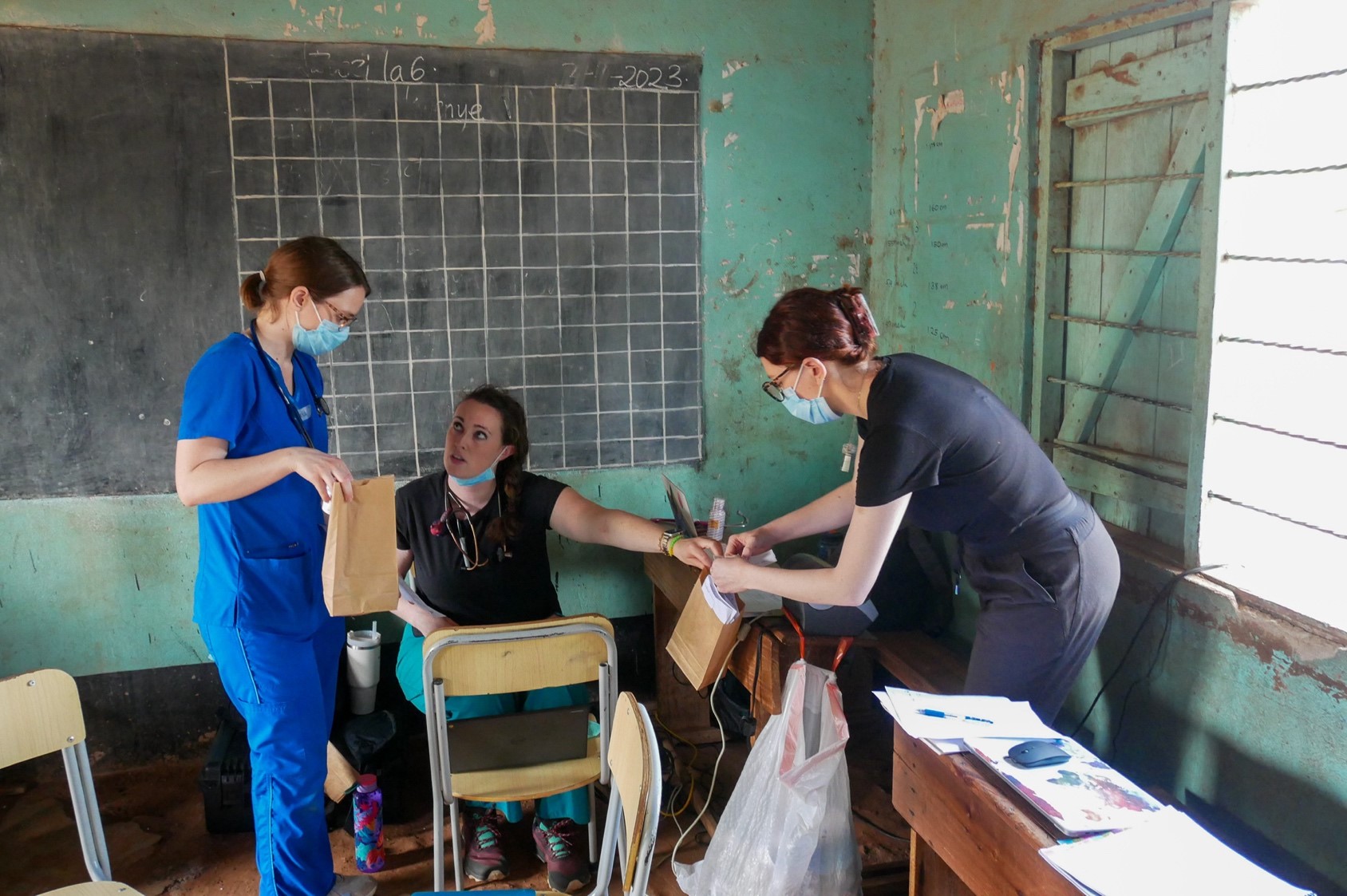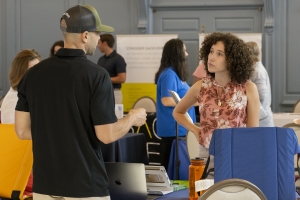

Simple Interventions For Dr. Kelli Jarrell ’12, a multidisciplinary approach is foundational to her career in social emergency medicine.
Originally from rural West Virginia, Dr. Kelli Jarrell ’12 grew up in a town with large disparities in health care access. At a young age, she witnessed how a lack of nearby medical facilities and a growing opioid epidemic wounded her community.
“Seeing the ways different social vulnerabilities played out — in the lives of people that were not only familiar to me but people that I knew and cared about — was a driving force in encouraging me to pursue health care,” Jarrell says.
When her father became a doctor later in life, she saw how such a small action could make a massive difference: “It was revolutionary to see [the impact] that just one person becoming a physician had on our community,” she says.
Jarrell arrived at Washington and Lee University with pre-med plans and an interest in biochemistry. Although she was passionate about addressing social inequality, she had no intention of studying it in school. To fulfill a general education requirement, she was encouraged by her adviser, Bentley Professor of Chemistry Erich Uffelman, to enroll in Poverty 101.
“I initially was [weary] of a scholarly discussion of poverty,” Jarrell says. “I thought, ‘I see poverty in the wild — who cares about what philosophers say about it?’”
Once she took that class, everything changed. Captivated by Fletcher Otey Thomas Professor of Religion Emeritus Harlan Beckley’s teaching style and classroom conversations, she decided to pursue the poverty and human capability studies minor. She developed a deep appreciation for the Shepherd Program’s multidisciplinary coursework and service-based learning opportunities. During her time in the program, she completed volunteer work at a nursing home, the Rockbridge Area Free Clinic and Campus Kitchen, along with an internship as a medical assistant at So Others Might Eat, a nonprofit serving vulnerable populations in Washington, D.C.
After graduating from W&L, Jarrell attended Vanderbilt University School of Medicine. During her residency at the University of Cincinnati (UC) Department of Emergency Medicine, social emergency medicine emerged as a subspecialty.
Social emergency medicine leverages emergency departments as a place to reach vulnerable populations who often do not access other health care venues. These patient interactions help physicians better understand how social vulnerabilities — such as hunger, housing insecurity, substance abuse and the impact of violence in one’s community — affect an individual’s well-being, and the information can be used to develop holistic treatment plans.
“I think the Shepherd Poverty Program definitely lays the groundwork for a systems-thinking approach to medicine as a whole,” she says.
Jarrell currently works as an emergency medicine provider for the University of Cincinnati, primarily treating patients at a UC community affiliate site in the West Chester suburb. She also works at the university’s academic hospital in downtown Cincinnati, where she trains medical residents.
In June 2020, Jarrell became UC’s inaugural Social Emergency Medicine Fellow, and in February 2021, she was named the 2020 National Emergency Fellow of the Year by the Emergency Medicine Residents’ Association. She was granted the freedom to design and personalize the fellowship, allowing her to earn a master’s degree in public health while completing both clinical and project-based work with the emergency department.
“Everyone deserves equal access to care for health emergencies and accidents … accidents don’t discriminate,” she says. “But social determinants make health emergencies disproportionately impact certain groups. We see patients on the worst day of their lives; no one wants to need an emergency physician. The emergency department is the front door of the health system and, as such, the frontline for health equity. We are the primary doctors for patients who don’t have doctors. The ED is a great place to target interventions and connect people to needed resources — it’s why I think this work is important.”
This article first appeared in the Fall/Winter 2024 issue of W&L: The Washington and Lee Magazine. Contact us at magazine@wlu.edu.
 For her master’s program, Dr. Kelli Jarrell ’12 (center) completed two research-based projects in Tanzania: an educational needs assessment at a University of Cincinnati partner hospital and an evaluation of the Tanzanian electronic medical record from a physician’s perspective.
For her master’s program, Dr. Kelli Jarrell ’12 (center) completed two research-based projects in Tanzania: an educational needs assessment at a University of Cincinnati partner hospital and an evaluation of the Tanzanian electronic medical record from a physician’s perspective.


You must be logged in to post a comment.